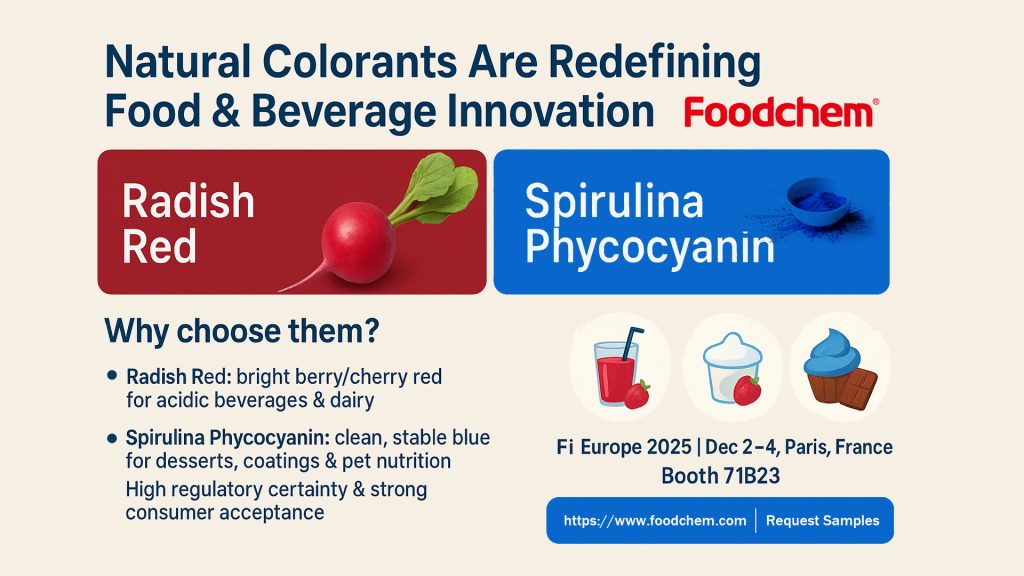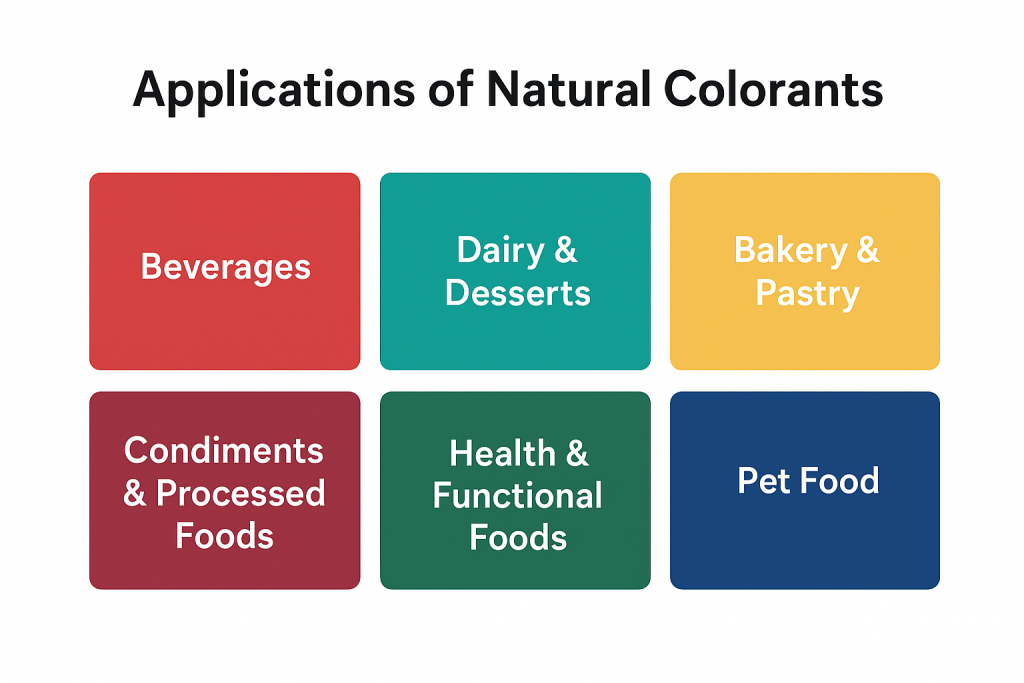FOODCHEM
Share:

Новости
Natural Colorants on the Global Stage: Radish Red and Spirulina Phycocyanin Take Center Stage at Fi Europe 2025
In 2025, natural colorants are reaching a pivotal moment in the food and beverage industry. With the United States set to gradually ban certain synthetic colorants between 2025 and 2027, and Europe increasingly emphasizing “clean label” products, demand for natural alternatives is surging. Against this backdrop, Radish Red and Spirulina Phycocyanin (Phycocyanin Blue) from China are emerging as two key solutions for replacing synthetic red and blue colorants.

- Color Performance: Provides bright, transparent berry/cherry red hues in acidic systems, closely matching Red 3.
- Applications: Beverages, fermented dairy, fruit preparations, confectionery, pickled products.
- Key Advantages:
- Superior light stability compared with many natural red colorants, ensuring shelf-life retention.
- Vibrant color at low pH, ideal for fruit juices and functional beverages.
- Plant-derived, meeting “no synthetic colorants” and clean label requirements.
Spirulina Phycocyanin: Nature’s Pure Blue Protein
- Color Performance: Delivers a clean, bright blue hue, one of the few natural sources of blue available in the market today.
- Applications: Ice cream, frozen desserts, confectionery coatings, beverages, plant-based dairy, pet foods.
- Key Advantages:
- High stability in neutral to mildly acidic systems, suitable for a wide range of beverage formulations.
- Functional properties, with natural antioxidant activity as part of the algal protein.
- Sustainable source from renewable Spirulina, aligning with eco-friendly and low-carbon initiatives.

- Regulatory Compliance: Natural colorants offer higher regulatory certainty amid the phased-out use of synthetic colorants in the US and Europe.
- Consumer Acceptance: Market research indicates that over 70% of consumers prefer “no artificial additives” products in beverage and dairy purchasing decisions.
- Brand Value: Brands using natural colorants can position themselves as healthier and more sustainable.
- Long-Term Competitiveness: Compared with cost-effective synthetic alternatives, natural colorants will become a critical tool for product differentiation and premium positioning.
Industry Significance
As global consumers increasingly prioritize safety, naturalness, and health, natural colorants not only respond to regulatory trends but also represent a strategic shift in the value proposition of food products. Applications of Radish Red and Spirulina Phycocyanin are set to drive innovation across beverages, dairy, confectionery, and pet nutrition sectors.
Foodchem will showcase these products and application solutions at Fi Europe 2025, demonstrating their commitment to “natural, stable, and professional” color solutions and helping global customers seize strategic opportunities in the natural colorant market.





